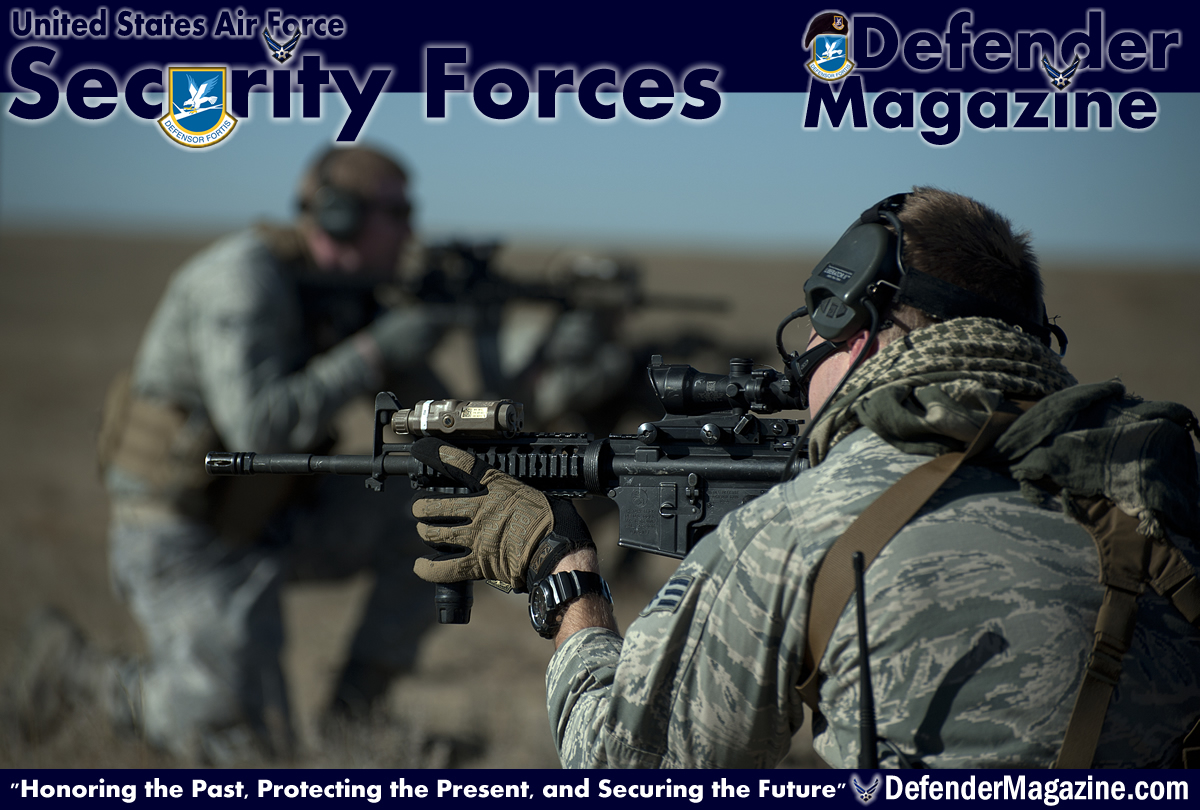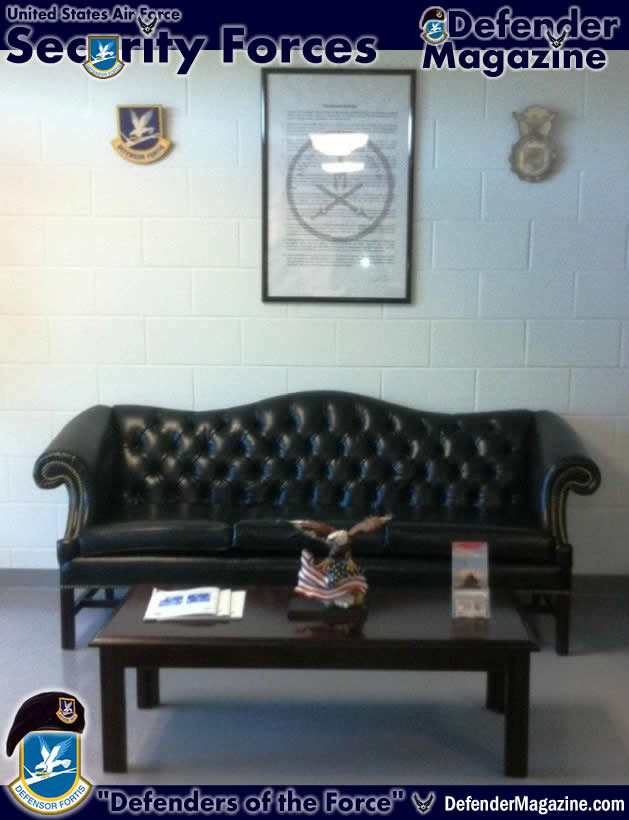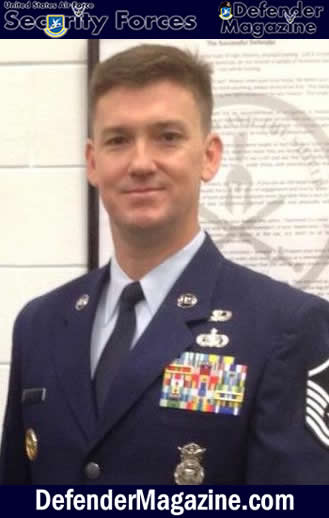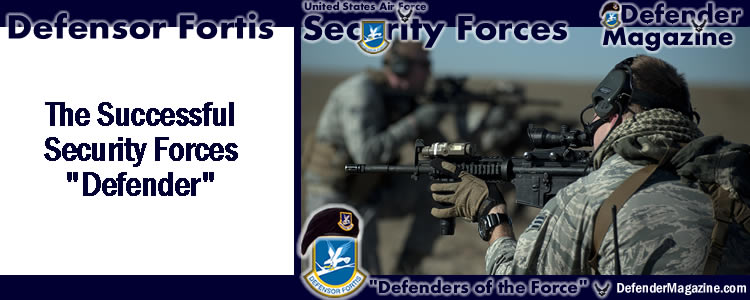I’ve always been a big advocate for setting young defenders up for success.
No matter where you go in life, there always seems to be one or two people who you want to keep the new guys from hanging out with, but in trying to stay positive, you’d be wise to stay away from saying things to newly minted defenders like “stay away from A1C Tentpeg, he doesn’t pull his weight and will only bring you down to his level.”
Instead of telling people what not to do, in order to be successful, we need to show them what and how to do their job, the right way, and not dwell on anything negative. But in addition to demonstrating and teaching, a good “how to” list can also help. Much like the Airman’s Creed, it doesn’t hurt to have something in writing to use as a reminder on how to stay the course to becoming a successful defender.
In 2012 I felt the need to put pen to paper and draft something for my unit’s young defenders to be able to read, reference, and guide them should they veer off azimuth. As their berets began to fade and ABUs became worn from training and experience, it was time they have more than just the standard AFI or handbook to keep them on track. At the time, we seemed to have more than the typical one or two defenders who decided the career field wasn’t for them and figured they’d just stick with the minimums and get by. That type of attitude is inevitable and can be a big challenge for leaders to work with. We’ve all heard the phrase “90% of a leader’s time is spent dealing with 10% of the people.” That holds true in Security Forces as well as in any corporate setting. In an effort to rekindle morale and focus on the mission, below are 10 tenants that I wrote to help support the other 90%. While this was written with a focus on our 7,000 part-time defenders in the Air National Guard, it can hold true for any defender, regardless of rank, duty status, or time in service.
- Fitness! You should be doing some type of high intensity functional fitness training. Call it CrossFit, Mountain Athlete, or Ranger Athlete Warrior, but if your workouts do not include a variety of functional movements that focus on strength, speed, and balance – you will be hurting on the job.
- Don’t be late. Don’t be light. Don’t be last! Always meet your time hacks. Be where you are supposed to be and be early. Never be the last to finish anything; always strive to be first. This includes being the first to volunteer for any detail and having the right equipment for any mission. This could range from a push broom to a full breaching kit.
- Have a winning attitude. This should not be misunderstood as arrogance; it should be a quiet confidence mixed with a good balance of humbleness. You will be criticized and corrected as part of your progression through the ranks within the Security Forces career field. This is not a personal attack, and if you disagree with your leaders that is your right; as is the right to remain silent.
- Tactics change and evolve. Because the tactics you were taught at tech school or your last unit don’t resemble the tactics you may see at our unit, does not mean they are wrong. We don’t practice high speed tactics here, we teach and hone the basics of our craft and ask that you perform them with precision while under stress. Performing the basics, under stress, with precision, is the true definition of high speed.
- We are looking for self-motivated thinkers, not PT junkies. If you can do 100 dead-hang pull-ups, that is awesome. If you cannot define deadly force or the rules of engagement and how to apply them, then we cannot take you. A good mix of brain and brawn is always more desirable than a lack of one or the other. You must be willing and able to improve yourself tactically and physically with minimal prodding.
- You will constantly be assessed individually by your leaders and peers. Teamwork is a must in our line of work, but you must be willing and able to operate independent of your teammates. This requires trust and integrity. You can exaggerate your stories at the bar, but don’t lie or falsify your understanding of a mission to your leaders or teammates.
- Prepare for war each and every day as if war is imminent – because it is. Prepare your mind, heart, and your family. Have your equipment clean, in good order, and ready to deploy at a moment’s notice. Do not assume that because we’ve been at war for more than a decade that you will be given ample time to plan and prepare.
- Do not mistake CDCs, PT tests, or weapons qualification courses as training. They are used as a tool to measure your knowledge and abilities in an environment absent of distractions and the fog of combat. To “qualify” is the minimum just to become a Defender, but to earn “expert” is the minimum acceptable standard to remain a Defender.
- Everything should be a competition, as competition brings out the best of the war fighter. It allows you to identify better and more efficient ways to accomplish our craft. From PT tests to qualifying on the range, challenge your teammates to run faster and shoot more accurately than you. You’ll be surprised at how much better you will perform when there is someone competing against you.
- Push beyond the pain and don’t use sickness or injuries as an excuse and know the difference between soreness and injuries. Bounce back and return to your team; they need you. Whether training or at a deployed location, losing just one Defender to profile or sick call weakens the unit. We are in a business that demands you work through discomfort, overlook the bruises, and ignore the growing pains of life as a war fighter.
You’ll notice the above list focuses more so on wartime preparedness, which is because as members of the Guard, we are typically a contingency force with minimal requirements for real-world law enforcement missions. They are not all inclusive and can be tailored for different units and mission-sets, but from where I sat when I wrote this almost three years ago; that is what I felt most important at the time and understood not all rules are timeless, nor would they apply to everyone. Much like our defenders standing post at this very minute, our tactics, training, and combat mindset should remain fluid and flexible.
After writing The Successful Defender I shared them with the operations superintendent. Little did I know he would share them with the squadron commander who liked it enough to have the base print shop enlarge it to poster size where he then endorsed it with his signature, framed it, and hung it in the unit’s entrance for all to see.
Today, as I sit behind a desk and view things from a higher headquarters’ perspective, interacting daily with more than 90 security forces squadrons, I still see relevance in the words I wrote as a flight chief at a specific time, for the good of a handful of young defenders, at a specific squadron.
By MSgt Peter K. Bowden
ANG Security Forces



